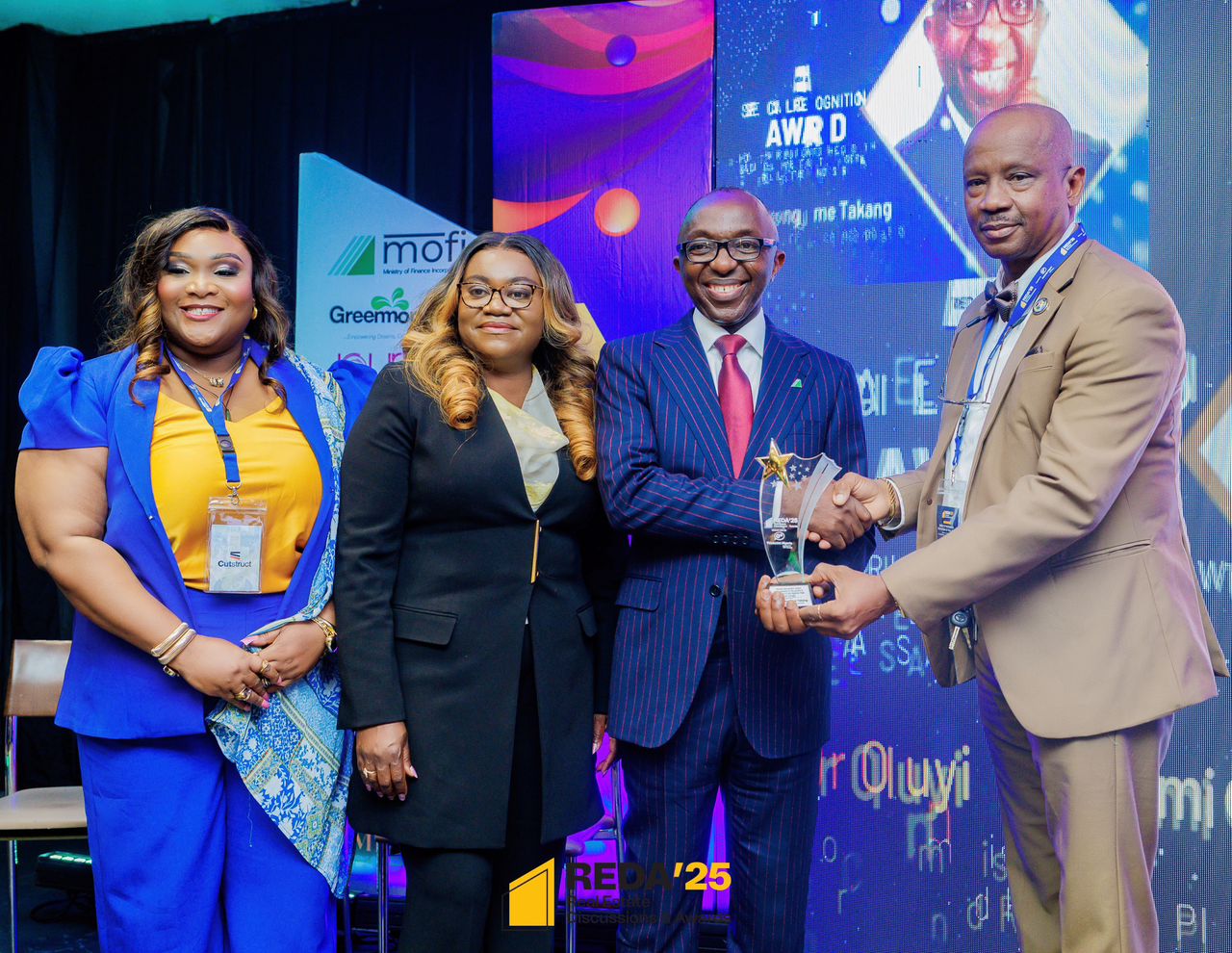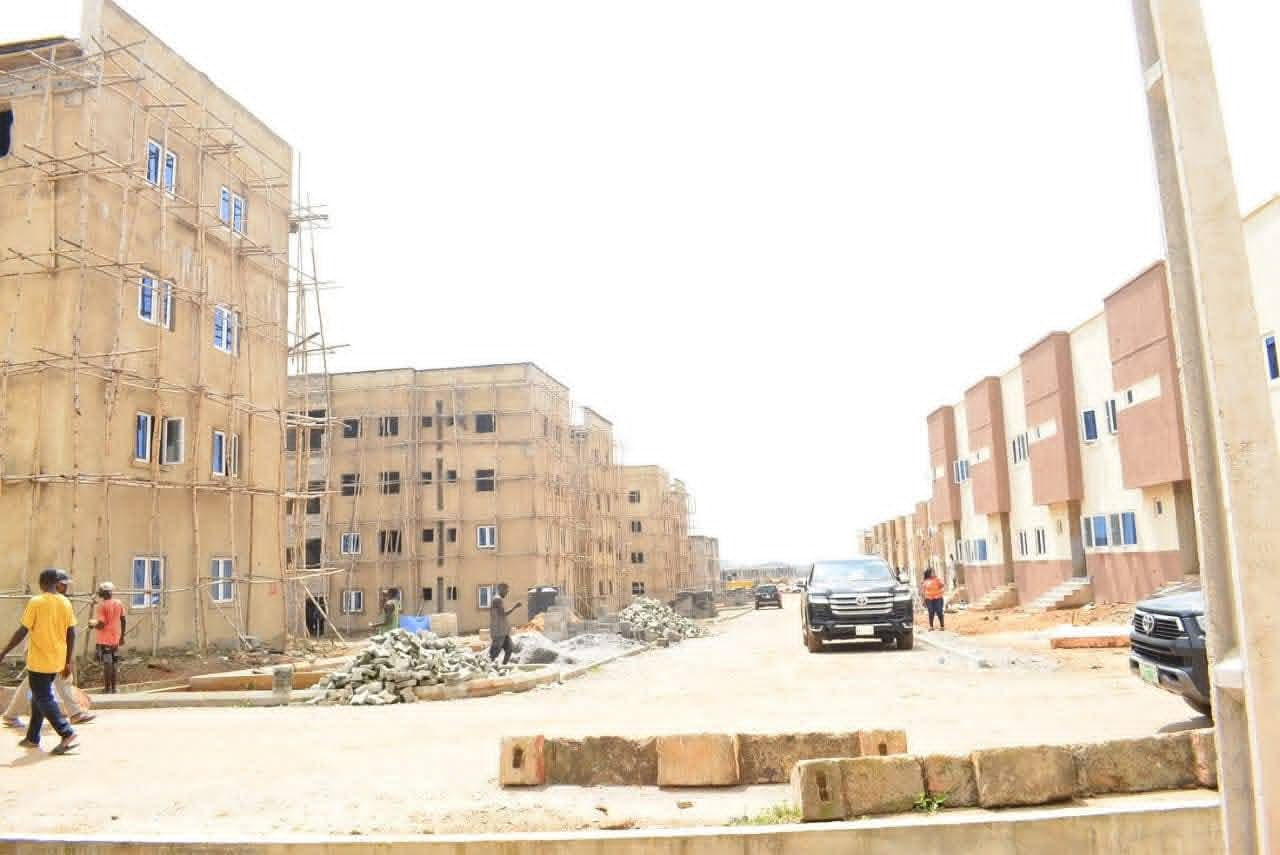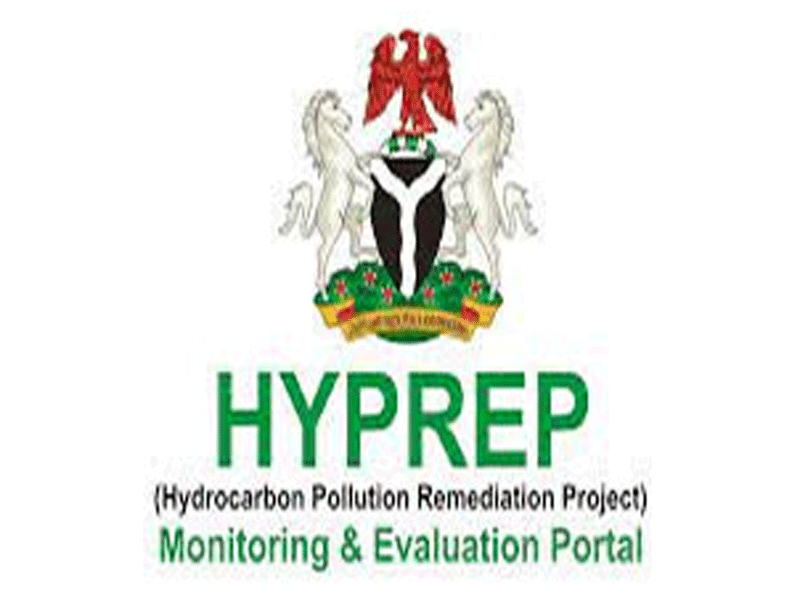Stakeholders in Nigeria’s built environment have called for a renewed focus on sustainability, inclusiveness, and transparency in Lagos’ fast-growing property market.
Speaking at the Real Estate Discussions and Awards (REDA) 2025, themed “Back to the Basics: The Future of Real Estate,” Governor Babajide Sanwo-Olu reaffirmed the state’s commitment to building a “people-centred housing ecosystem” anchored on quality, affordability, and environmental resilience.
Represented by his Special Adviser on Housing, Dr Barakat Odunuga-Bakare, the governor urged industry professionals to return to the core principles of integrity and sustainability in real estate practice.
“Real estate is ultimately about people, families seeking homes, young Nigerians aspiring to ownership, and investors who trust the state’s vision,” he said.
Sanwo-Olu noted that the state government, through the Lagos State Real Estate Regulatory Authority (LASRERA), continues to promote transparency and consumer protection. He also highlighted the growing adoption of digital platforms to modernise property documentation and management processes, saying these reforms would reduce fraud and boost investor confidence.
In his address, the Managing Director and Chief Executive Officer of the Ministry of Finance Incorporated (MOFI), Dr Armstrong Takang, put Nigeria’s housing deficit at 28 million units, estimating that more than N21 trillion would be required to close the gap.
To tackle the shortfall, Takang unveiled the MOFI Real Estate Investment Fund (MREIF), a blended-finance initiative aimed at promoting affordable housing and market inclusiveness. He disclosed that the fund has introduced single-digit mortgages at 9.75 per cent interest with 20-year tenors and called on developers and financiers to collaborate in “building not just houses, but hope, a market, and a nation.”
The Lagos State Commissioner for Physical Planning and Urban Development, Dr Olayinka Olumide, emphasised the pivotal role of urban planning in achieving sustainable real estate growth. He outlined the state’s ongoing digital transformation through the Enterprise Geographic Information System (E-GIS), which enhances transparency and efficiency in land documentation and approval processes.
Olumide urged developers to adopt green designs, climate-smart architecture, and transparent business practices to ensure long-term urban resilience.
Earlier, the Founder and Chief Executive Officer of Thinkmint Nigeria/Europe, Mrs Imelda Usoro-Olaoye, described this year’s theme as a “call to unlearn, learn, and relearn” the fundamentals required to build a robust and ethical real estate industry.
According to her, REDA 2025 served as a platform for dialogue among developers, policymakers, financiers, innovators, and investors. “Sustainability and inclusivity are no longer optional; they are the foundation of modern real estate development,” she said. “Our collective goal should be to create an ecosystem where integrity, innovation, and impact drive every decision.”
Usoro-Olaoye noted that knowledge-sharing and capacity-building were critical for navigating the evolving real estate landscape. She commended the Lagos State Government for its continuous support of the private sector and urged stakeholders to align with global best practices while adapting them to Nigeria’s unique market realities.
The Managing Director of the Lagos State Development and Property Corporation (LSDPC), Hon. Ayodeji Joseph, represented by the Executive Director of Enterprise Services, Adeniyi Aromolaran, stressed that the future of real estate “will not be built on ambition alone, but on integrity, sustainability, accessibility, and resilience.”
Joseph reaffirmed LSDPC’s five-decade-long commitment to affordable housing and urban regeneration, describing the “return to basics” as a strategic reorientation towards what matters most, meeting human needs and building inclusive communities.
Also speaking, the Executive Chairman of Onigbongbo Local Council Development Area (LCDA), Hon. Moyosore Adebanjo, urged developers to move beyond constructing physical structures to creating functional, liveable communities.
He announced plans to establish the Onigbongbo Property Investment Company, a special-purpose vehicle designed to attract local investment, promote affordable housing, and expand revenue for the council.






